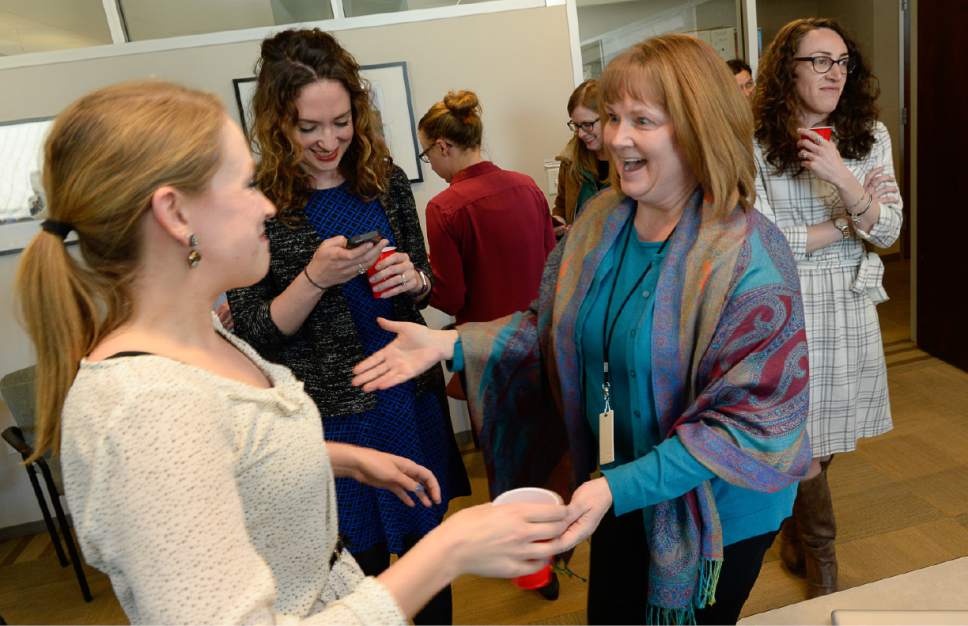This is an archived article that was published on sltrib.com in 2017, and information in the article may be outdated. It is provided only for personal research purposes and may not be reprinted.
"For a string of vivid reports revealing the perverse, punitive and cruel treatment given to sexual assault victims at Brigham Young University, one of Utah's most powerful institutions."
— Pulitzer Prize citation to The Salt Lake Tribune, April 10, 2017
So much of daily journalism seems to be cast out into the void, printed on disposable paper, posted on the ethereal internet, with far too little to show for it afterward.
No matter how much work and skill goes into it. No matter how important the information, news and watchdog functions of a free press are. And they are crucial to the functioning of a free and democratic society. Much of it feels, even to us, like footprints on the beach, washed away by the next tide.
Not today.
Today The Salt Lake Tribune celebrates receiving the highest honor journalism has to bestow, the Pulitzer Prize. It was awarded Monday in the local reporting category for a staff effort that exposed serious, if not downright cruel, actions of two of the state's major institutions of higher learning when students reported having been sexually assaulted.
It began with students at Brigham Young University reporting cases of sexual assault. Students who, instead of receiving the kind of help and protection that by right and by law are due to victims in such matters, were threatened with punishment for violating the LDS-owned school's Honor Code because they might have been drinking or spent time in the wrong rooms.
The school's practices clearly victimized the victims, and only when The Tribune brought the world the news of the brave people who came forward to tell their stories did anything change.
More reporting delved into a scandal at Utah State University, where multiple reports of assaults committed by one student went unheeded. Again, it took diligent reporting by Tribune journalists, in the face of serious resistance from the powers that be, to bring the situation to light and push the university and local law enforcement to act.
Since — and clearly in large part because of — these reports, both BYU and USU have instituted long-overdue policy changes that will support victims and encourage them to come forward, rather than shun them and, in effect, cover up for violent sexual criminals. More victims have come forward. And criminal charges have been filed against the former student accused of the assaults of USU students.
One definition of journalism is information that someone else doesn't want published. Watchdog reporting, by its nature, involves a lot of digging, time-consuming and often frustrating research and questioning that can take many weeks or months to come together and involve numerous public records requests and legal action.
In this case, the reporters and editors went above and beyond even that difficult call by showing great sensitivity to the victims they wrote about, incredibly brave young people who wanted their stories told but whose pain could easily have been intensified yet again by journalists who took any less care and showed any less humanity in their work.
Much of journalism, even some of the most important work, can feel downright vulturish. We let people know about tragedy, violence and loss, often when it is too late for anyone to do anything about it. This time, the astounding courage of the victims who came forward and The Tribune's unrelenting journalism has set both BYU and USU on a path to reform and put out the word to other institutions that such behavior is not to be tolerated.
The team was led by Managing Editor Sheila McCann, with articles reported and written mostly by Erin Alberty, Jessica Miller, Alex Stuckey and Rachel Piper, with photographs by Leah Hogsten, Chris Detrick and Francisco Kjolseth and support from staffers Matthew Piper, Benjamin Wood, Nate Carlisle and Peggy Fletcher Stack.
And grateful appreciation, bordering on awe, from the rest of the staff.
This prize is recognition of why The Salt Lake Tribune exists and why it endures. We are woven into the fabric of Utah precisely because only we can tell stories like these, challenge the powerful and make real change.



